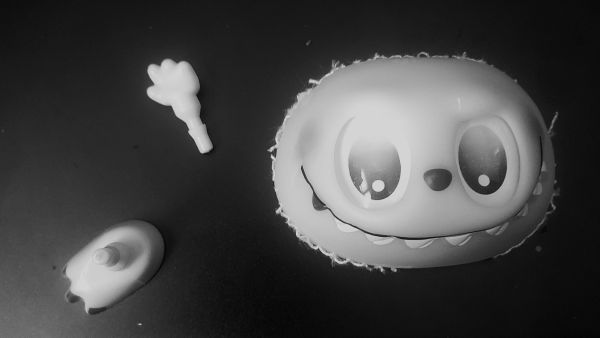ALBAWABA - The Labubu doll, which used to be a fun collectible, has suddenly become the center of a controversy, with videos of people "baptizing" or even burning the toys going viral online. The event has led to heated debates that mix pop culture, superstition, and consumer safety.
Hong Kong-born artist Kasing Lung made Labubu in 2015 as part of The Monsters series. The character quickly became popular around the world through charms, blind-box toys, and limited-edition releases. It has a monster-like design and a mischievous grin. Rare versions have sold for a lot of money on resale markets, making Labubu a cult collectible.
But in the last few months, the dolls have gotten a lot of attention for a very different reason. Some people on social media and the radio said that one or more of the designs were based on Pazuzu, a demon from Mesopotamian mythology. Some owners were scared by this claim and started doing rituals to "cleanse" their dolls. Some people have gone so far as to destroy or burn Labubus to "ward off evil," while others have just baptized them with water.
People online have had mixed reactions. Some people say the rituals help them relax, while others say they are disrespectful to religion. One person said, "It's a blessing, not a baptism." You can bless things, like cars, to keep them safe. Another person said, "It's wrong to make fun of the holy sacrament of baptism." Why would you even play with those dolls? Some people made fun of the hysteria by saying that owners baptize their toys but not themselves.
In addition to superstitions, safety concerns have also come up. The UK's Chartered Trading Standards Institute (CTSI) warned that fake Labubu dolls were flooding the market as the trend spread. These fake items, which often have bad stitching and parts that come off, can be dangerous for kids because they can choke on them. Some of them may also have poisonous chemicals in them, like lead and harmful dyes. Holographic stickers, QR codes, and UV stamps are all ways to tell if a Labubu product is real. Customers are told to only buy from stores they trust.
The Labubu craze shows how internet culture can turn a collectible into a global topic of conversation that combines fandom, fear, and doubt. People have been fascinated by the dolls in ways that few other toys have ever been. Some see them as playful monsters, others as cultural icons, and still others as "demonic vessels."









![Turkish series "Ask-ı Memnu" [Forbidden Love]. Turkish series "Ask-ı Memnu" [Forbidden Love].](/sites/default/files/styles/d02_traditional/public/2026-02/%D8%A3%D8%A8%D8%B7%D8%A7%D9%84-%D9%85%D8%B3%D9%84%D8%B3%D9%84-%D8%A7%D9%84%D8%B9%D8%B4%D9%82-%D8%A7%D9%84%D9%85%D9%85%D9%86%D9%88%D8%B9.jpg?h=c673cd1c&itok=nhq8-5rH)
